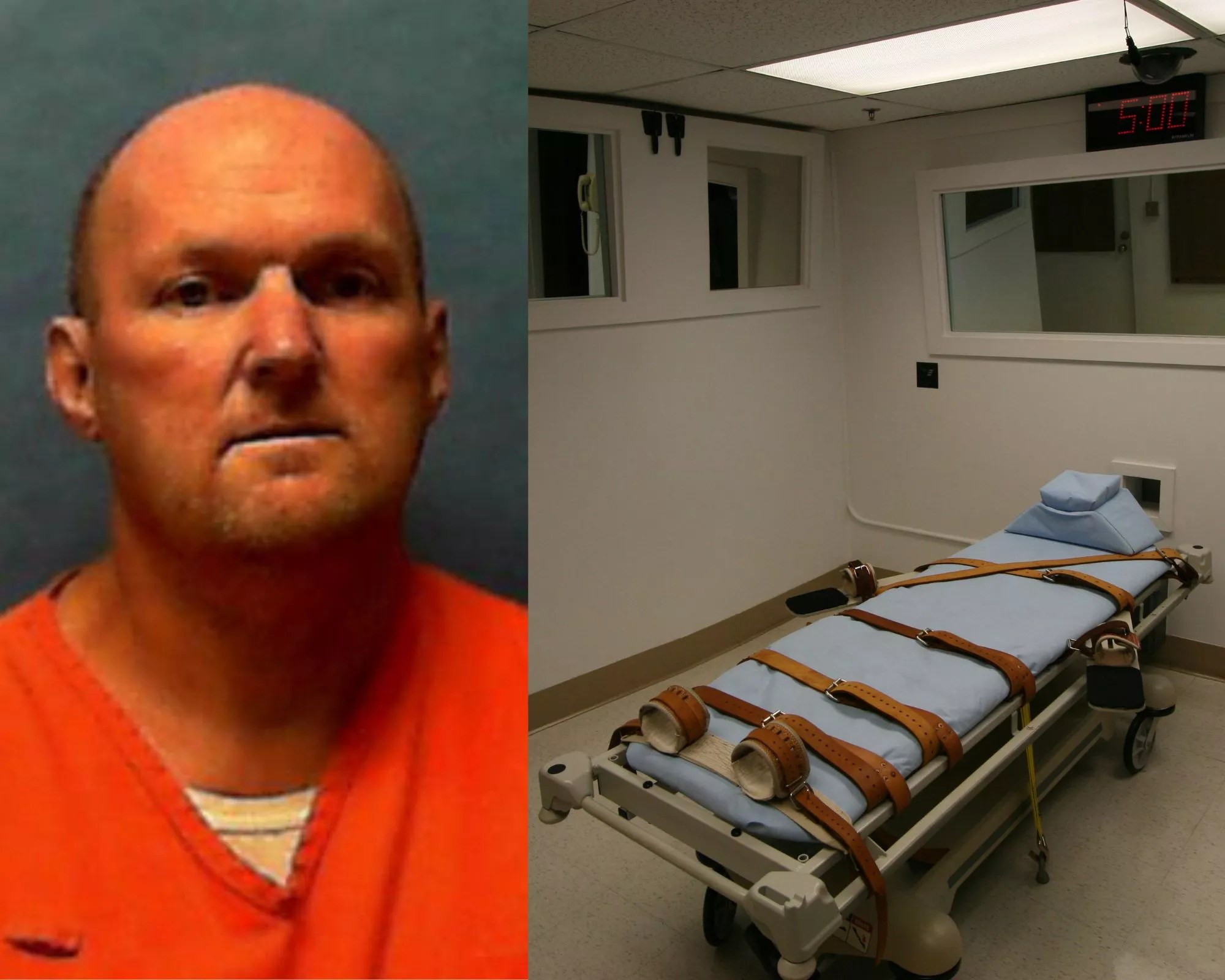
Photos by Florida Department of Corrections

Audio By Carbonatix
Gov. Ron DeSantis has signed death warrants for three death row inmates in less than three months, after a three-year lull in carrying out executions in Florida.
Between 2020 and early 2023, Florida put no prisoners to death under DeSantis’ governorship, a departure for a state that, on average, has executed more than two prisoners a year since 1995. DeSantis’ spokesperson Bryan Griffin said the gap in executions was a result of the COVID-19 pandemic.
The governor, who has maintained his support for the death penalty, is apparently resuming a more typical pace of executions in the state, signing off on death warrants on three convicted murderers.
On January 23, DeSantis ordered the execution of Donald Dillbeck, who was sentenced to death in 1991 in the fatal stabbing of Faye Vann in a Tallahassee parking lot following his escape from state custody. He was already serving a life sentence for killing a Florida police officer as a teenager. Dillbeck was executed on February 23 after the Florida Supreme Court struck down his petitions for relief.
Seven weeks after authorizing Dillbeck’s execution, DeSantis signed a death warrant for Louis Bernard Gaskin. Gaskin was sent to death row in 1991 after he was convicted of first-degree murder for killing Georgette and Robert Sturmfels in a random attack in Flagler County while wearing an all-black suit, which led him to be dubbed the “Ninja Killer.” His execution is set for April 12 at Florida State Prison in Raiford.
Then, on April 3, DeSantis signed a third death warrant, this time for Darryl Barwick, who is now scheduled to die by lethal injection on May 3 at 6 p.m. at Florida State Prison, barring any last minute delays and court appeals.
The 56-year-old was sentenced to death after he was convicted of first-degree murder in 1986 for stabbing a 24-year-old woman 37 times. On March 31, 1986, investigators said, Barwick, then 19 years old, noticed Rebecca Wendt tanning at her apartment complex in Panama City. He followed her back inside the apartment before attacking her with a knife, according to police. Wendt’s sister discovered her sister’s body wrapped in a comforter later that evening.
Barwick was arrested on April 15, 1986, and later confessed to the killing. He claimed he had only planned to rob her but “lost control” and began stabbing her. In addition to the murder charge, Barwick was found guilty of armed burglary, attempted sexual battery, and armed robbery in November 1986. A jury entered a 9-3 vote in favor of a death sentence.
However, on appeal in 1989, the Florida Supreme Court reversed Barwick’s convictions on the grounds that three black jurors had been improperly excluded from the jury pool. Though Barwick and his victim were both white, the court ruled that he still had the right to challenge racially based exclusion of jury candidates.
Barwick was retried in 1992 and convicted again, after which point a jury voted unanimously in favor of death. To no avail, Barwick had argued his original confession was coerced by investigators. He continued to appeal his conviction and sentence, but his challenges have been repeatedly rejected.
Dillbeck’s execution marked Florida’s 100th since the U.S. Supreme Court’s reinstatement of the death penalty in 1976. Before his execution, the state’s last execution was that of Gary Bowles in August 2019.
DeSantis signed a death warrant for James Dailey in September 2019, but his execution date was stayed by the court later that year and never rescheduled after the stay expired.
According to the Death Penalty Information Center, the years in which Florida carried out the most executions were 2014, when the state put eight prisoners to death under Gov. Rick Scott, and 1984, under Gov. Bob Graham, who also authorized the execution of eight prisoners.
Last year, after a Broward County jury could not unanimously agree on a death sentence for the Parkland high school mass shooter, DeSantis voiced his support for lowering the judicial threshold to sentence prisoners to death. Last week, the state Senate passed SB 450, which would allow death sentences by an 8-4 jury vote, scrapping the current requirement that the vote must be unanimous.